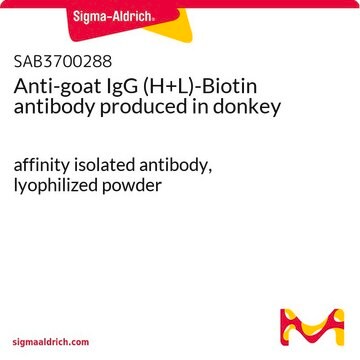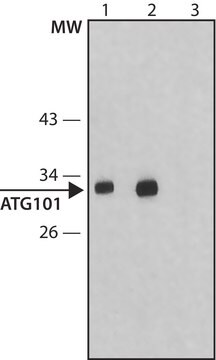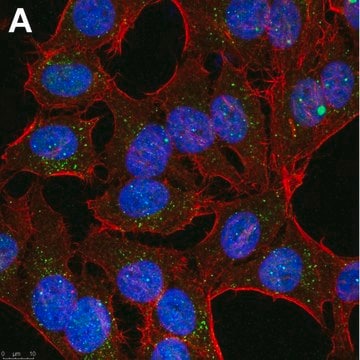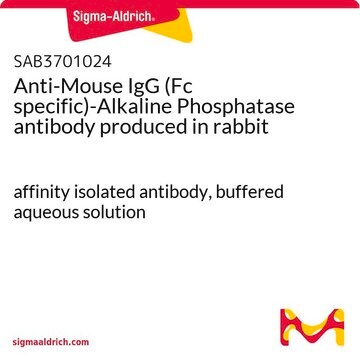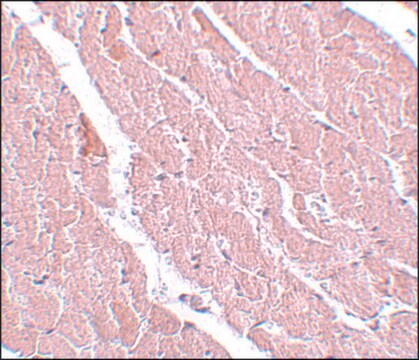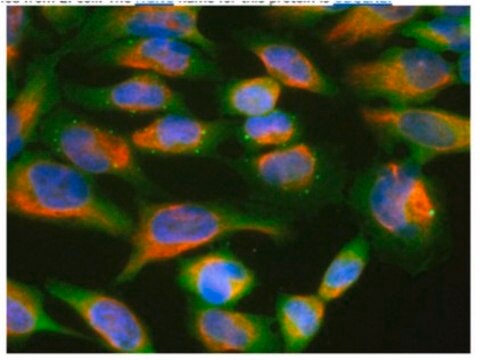SAB4200100
Anti-ATG13 antibody produced in rabbit
~1.0 mg/mL, affinity isolated antibody
Sinonimo/i:
ATG13 Antibody - Anti-ATG13 antibody produced in rabbit, Atg13 Antibody, Anti-Autophagy-related protein 13
Scegli un formato
312,90 €
Prezzo di listino447,00 €Risparmia il 30%Scegli un formato
About This Item
312,90 €
Prezzo di listino447,00 €Risparmia il 30%Prodotti consigliati
Origine biologica
rabbit
Coniugato
unconjugated
Forma dell’anticorpo
affinity isolated antibody
Tipo di anticorpo
primary antibodies
Clone
polyclonal
Stato
buffered aqueous solution
PM
antigen ~65 kDa
Reattività contro le specie
human, rat, mouse
Concentrazione
~1.0 mg/mL
tecniche
western blot: 1-2 μg/mL using whole extracts of human HeLa cells and 0.5-1 μg/mL using whole extracts of mouse 3T3 or rat PC12 cells.
Condizioni di spedizione
dry ice
Temperatura di conservazione
−20°C
modifica post-traduzionali bersaglio
unmodified
Informazioni sul gene
human ... KIAA0652(9776)
Descrizione generale
Specificità
Applicazioni
Azioni biochim/fisiol
Stato fisico
Stoccaggio e stabilità
Esclusione di responsabilità
Non trovi il prodotto giusto?
Prova il nostro Motore di ricerca dei prodotti.
Codice della classe di stoccaggio
12 - Non Combustible Liquids
Classe di pericolosità dell'acqua (WGK)
nwg
Punto d’infiammabilità (°F)
Not applicable
Punto d’infiammabilità (°C)
Not applicable
Scegli una delle versioni più recenti:
Certificati d'analisi (COA)
Non trovi la versione di tuo interesse?
Se hai bisogno di una versione specifica, puoi cercare il certificato tramite il numero di lotto.
Possiedi già questo prodotto?
I documenti relativi ai prodotti acquistati recentemente sono disponibili nell’Archivio dei documenti.
Filtri attivi
Il team dei nostri ricercatori vanta grande esperienza in tutte le aree della ricerca quali Life Science, scienza dei materiali, sintesi chimica, cromatografia, discipline analitiche, ecc..
Contatta l'Assistenza Tecnica.